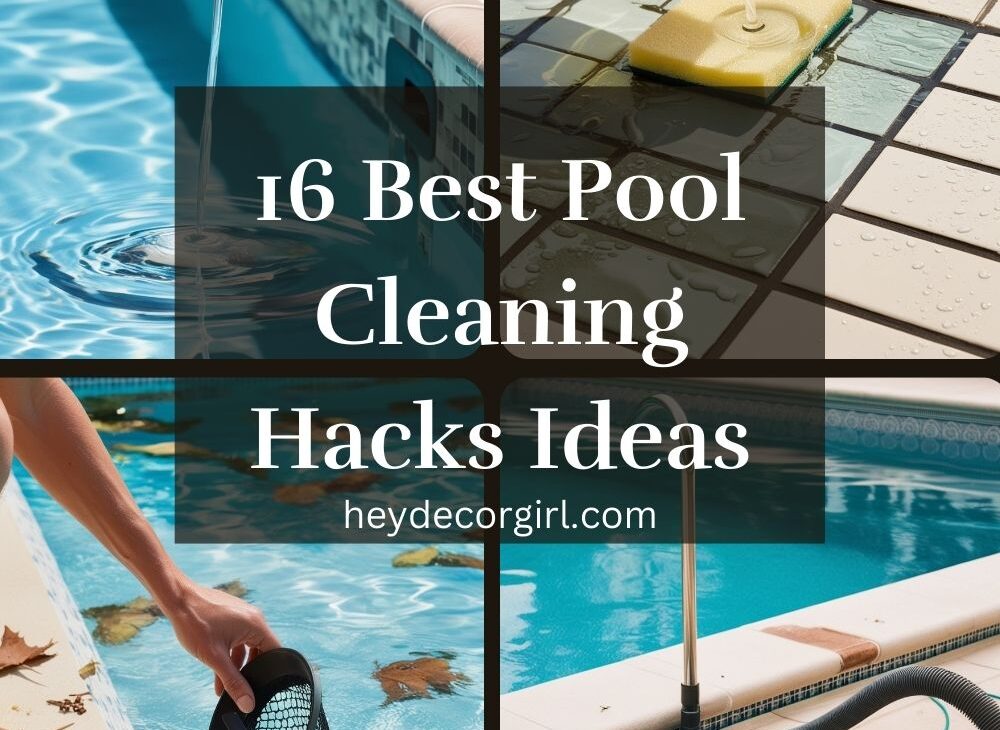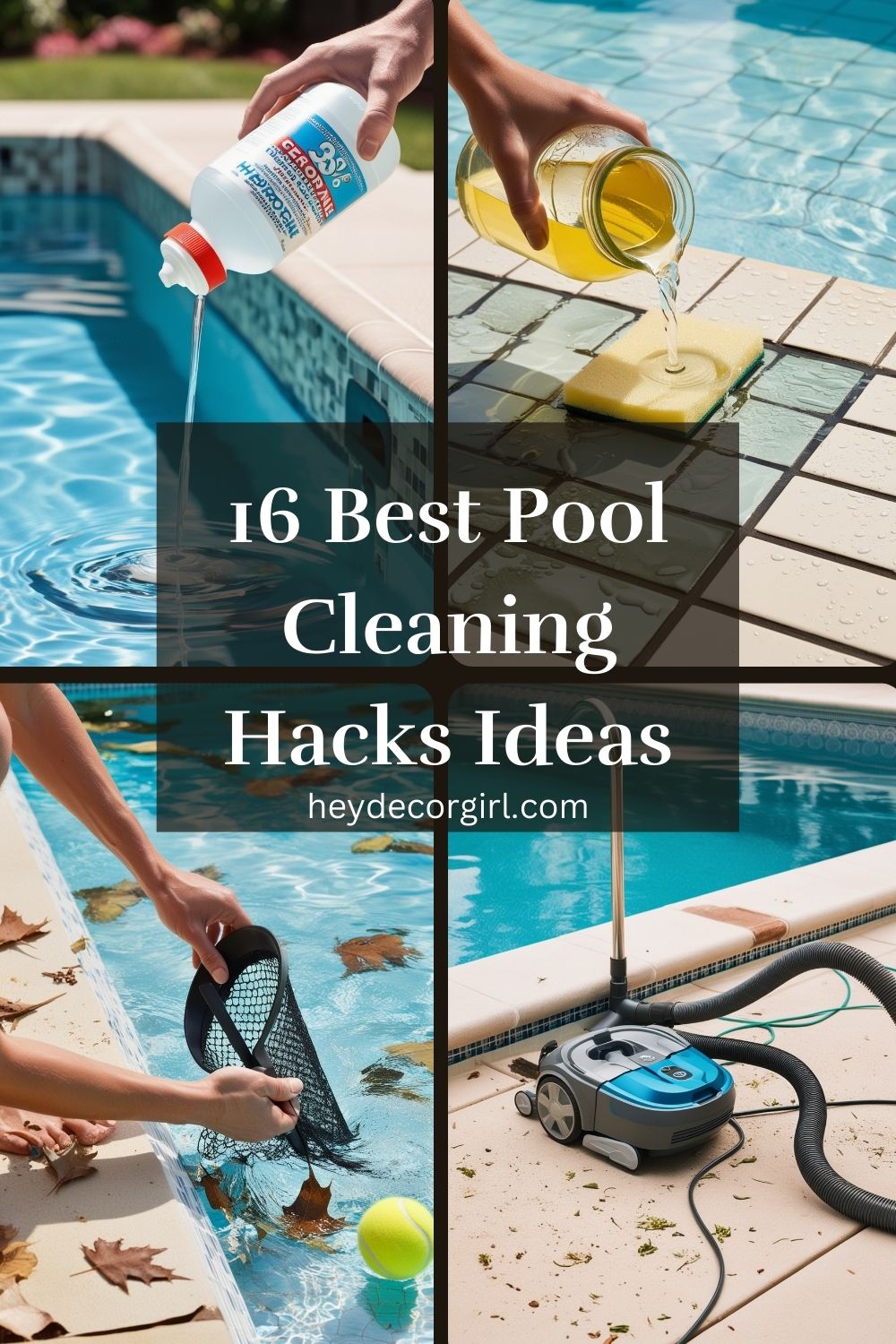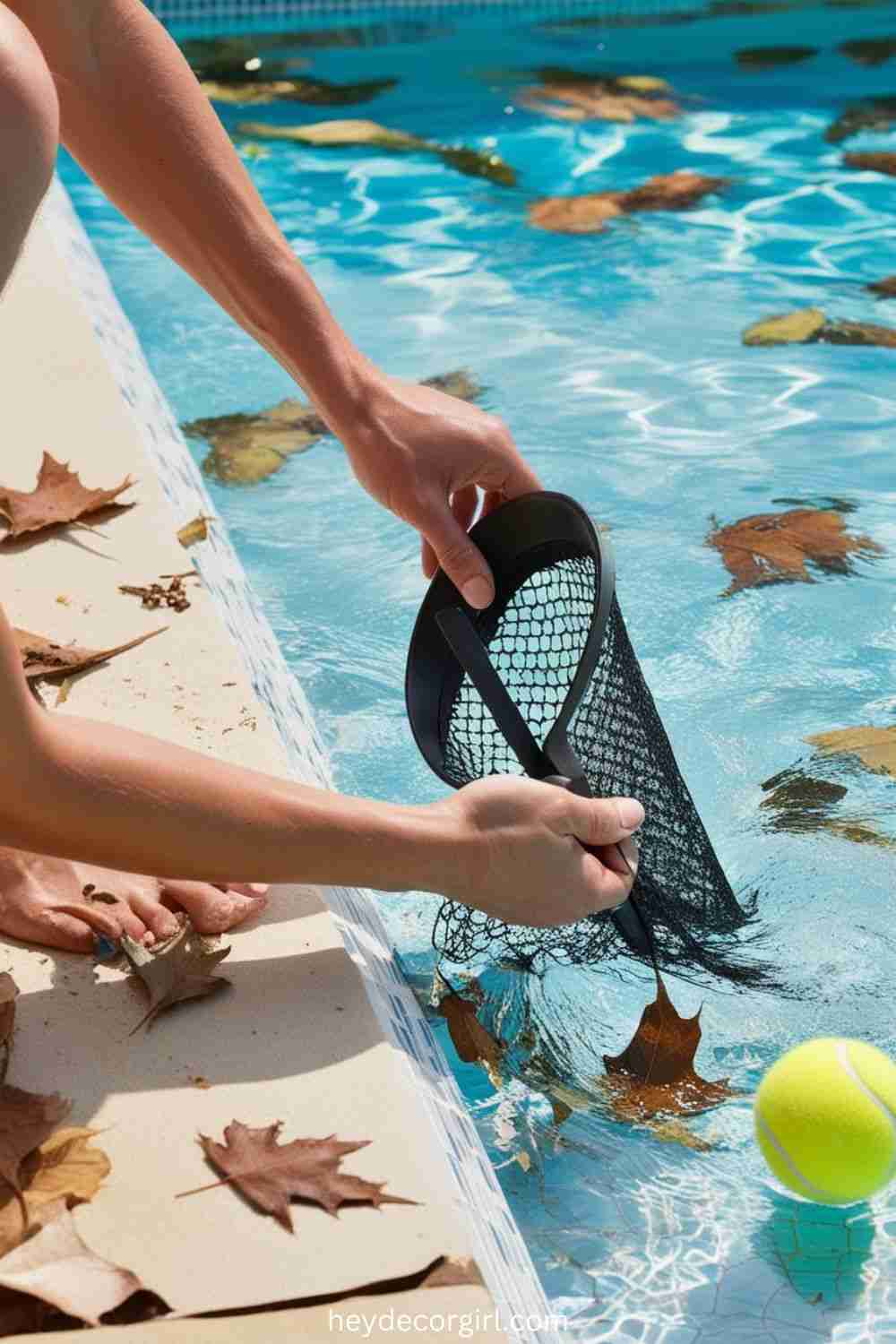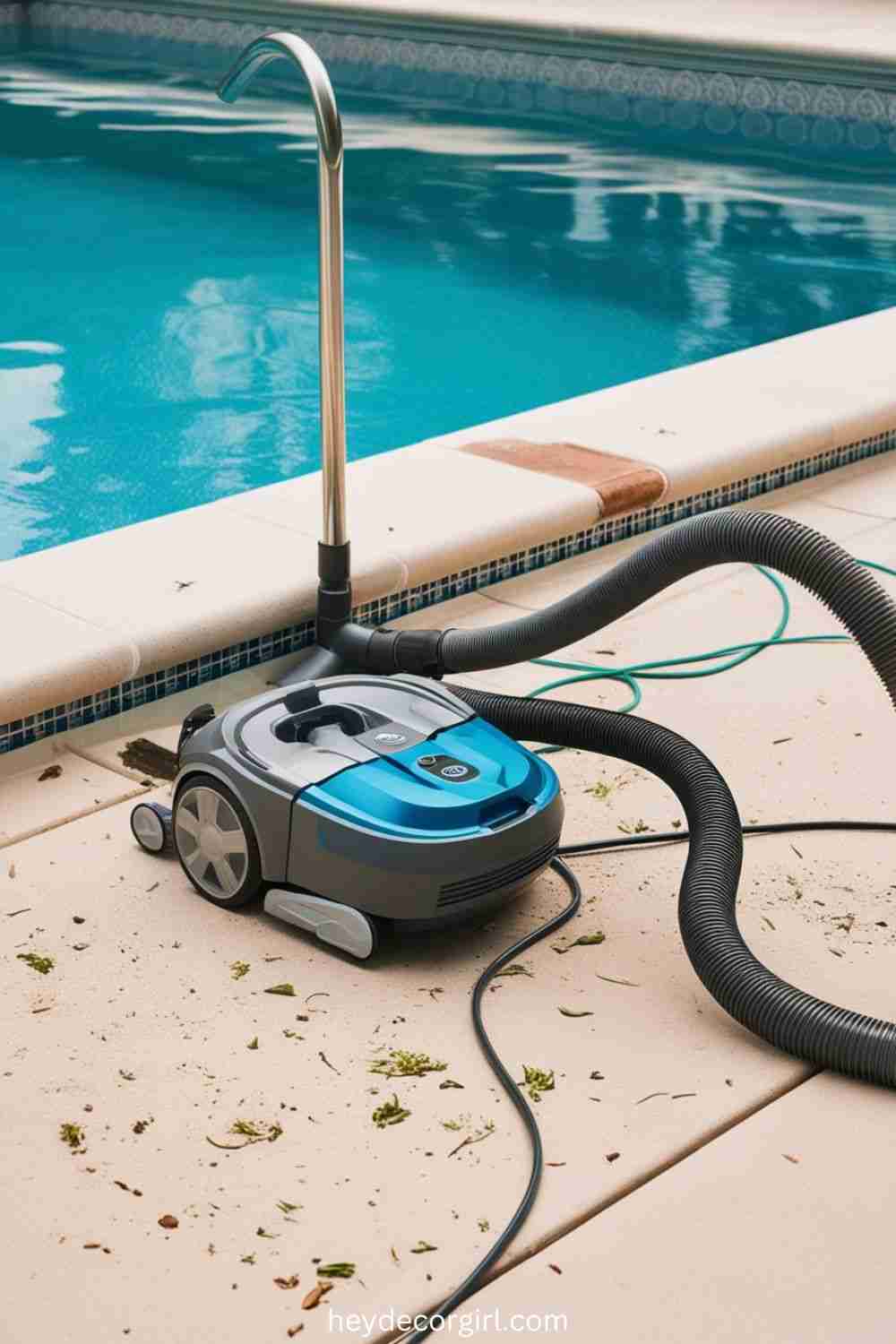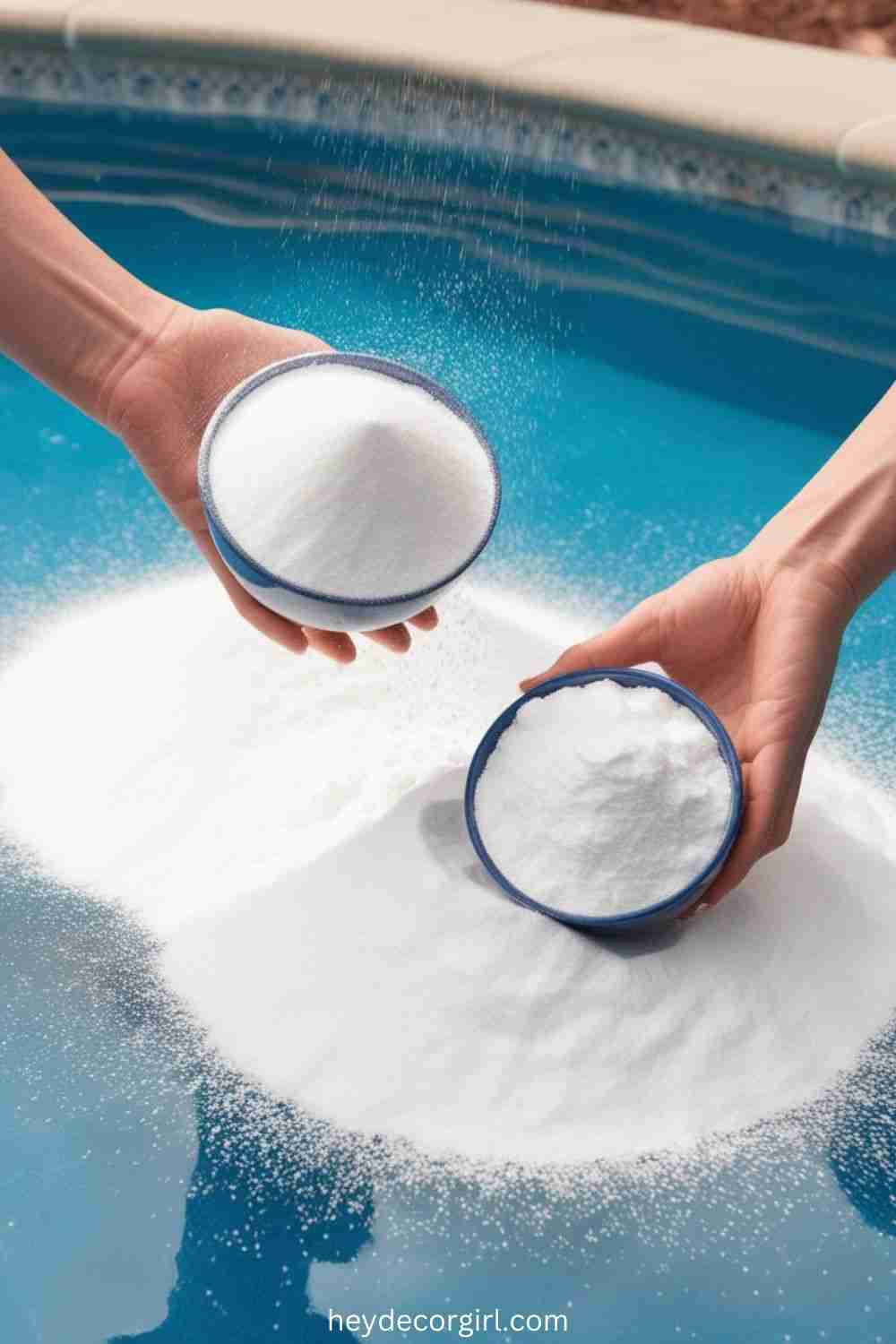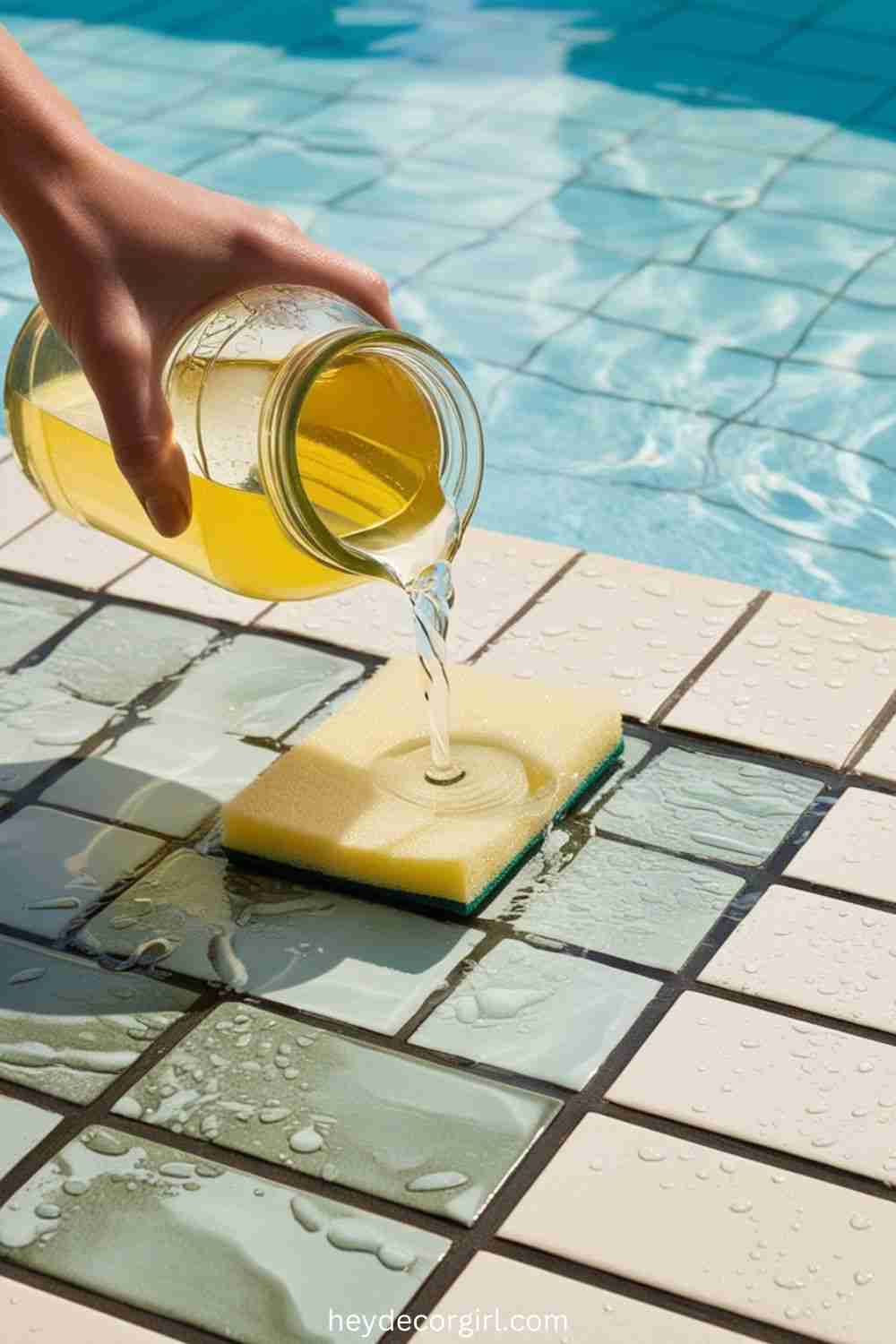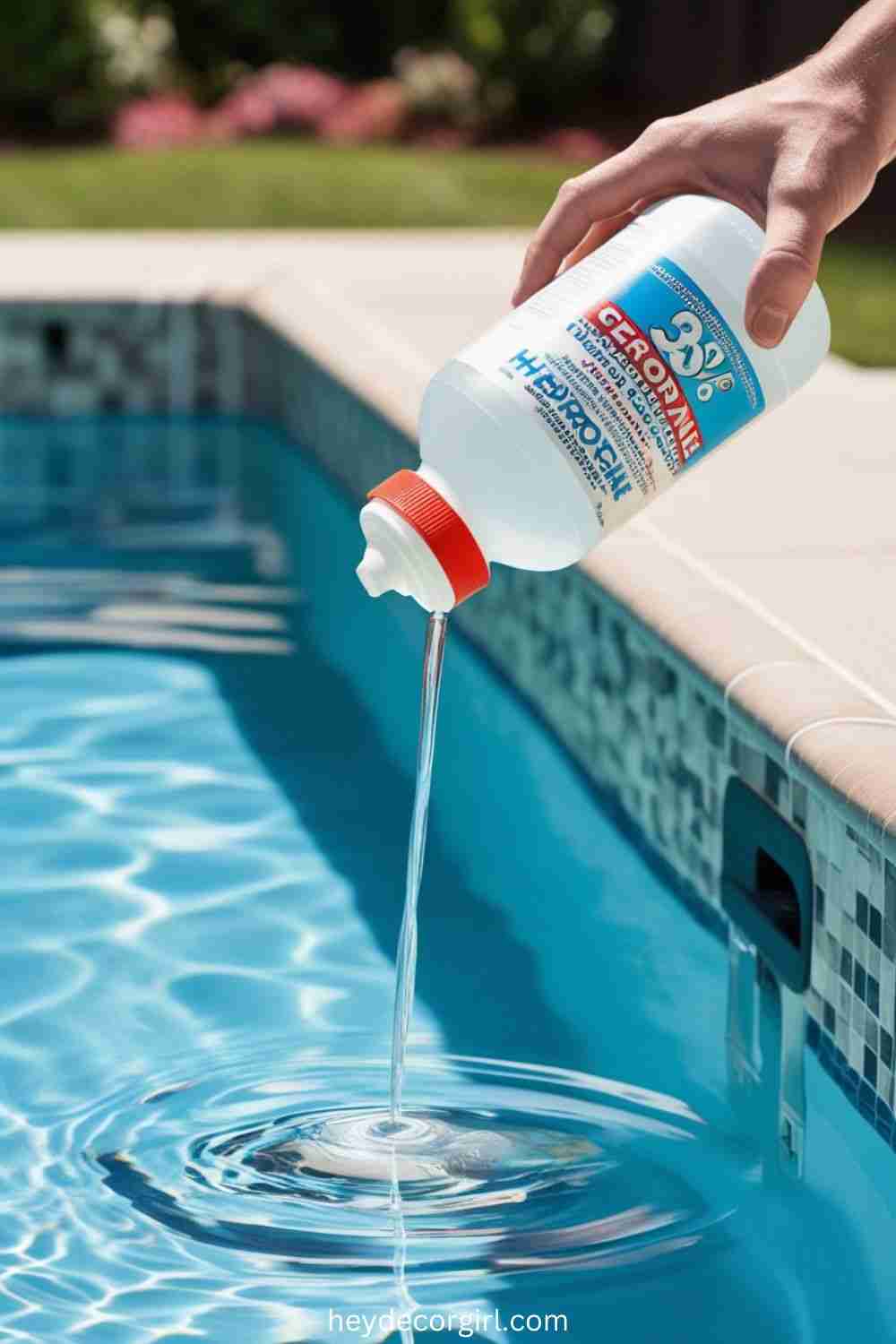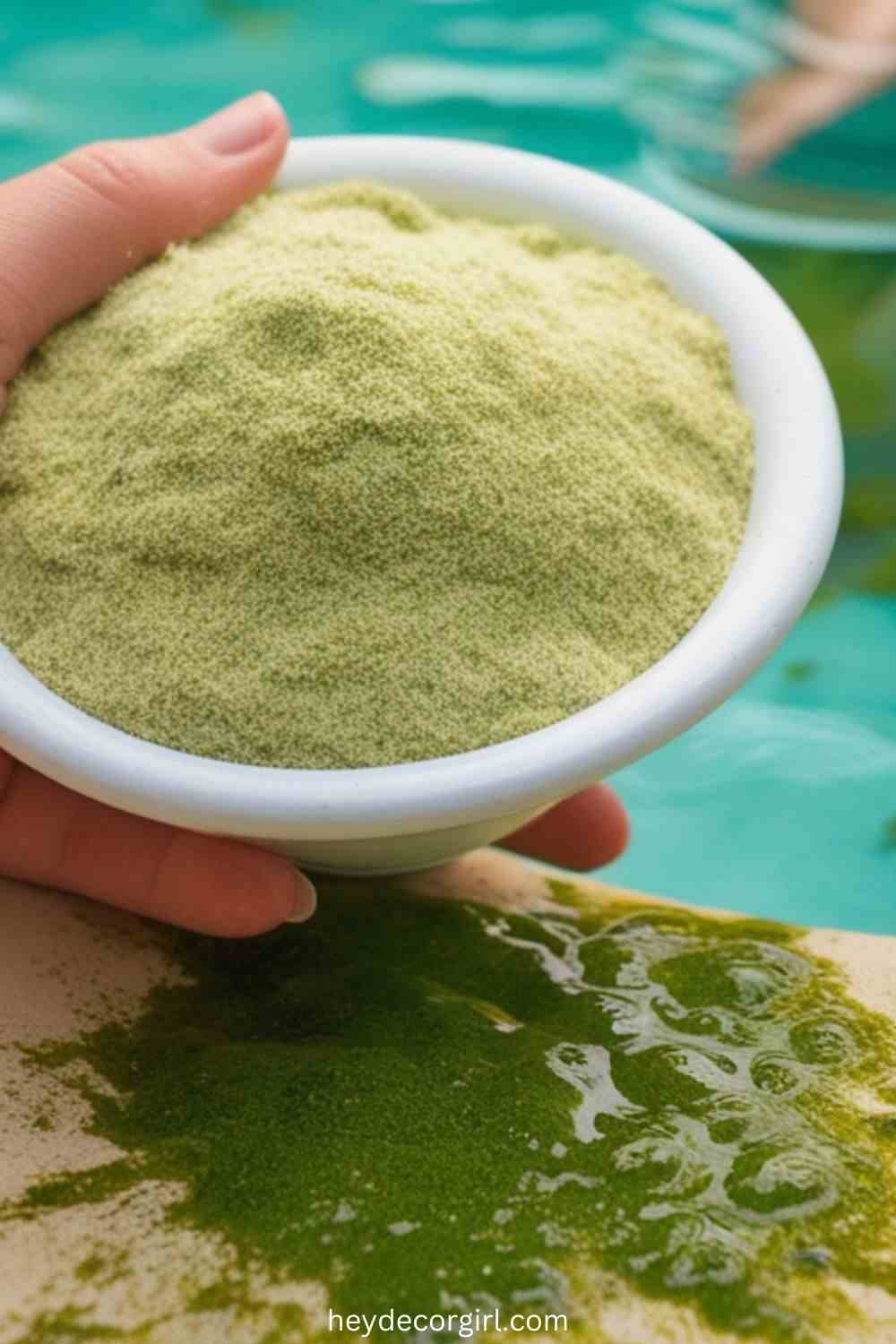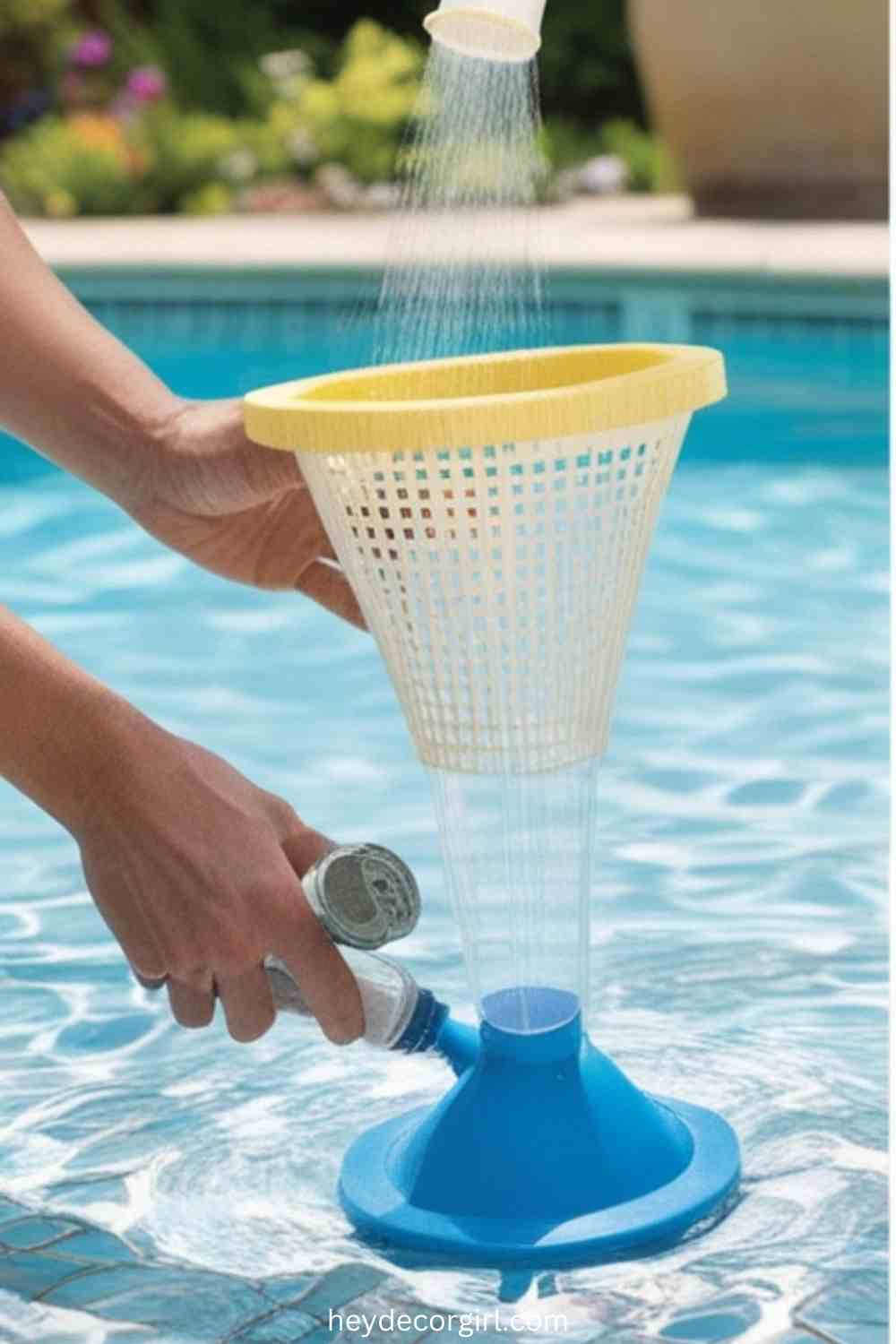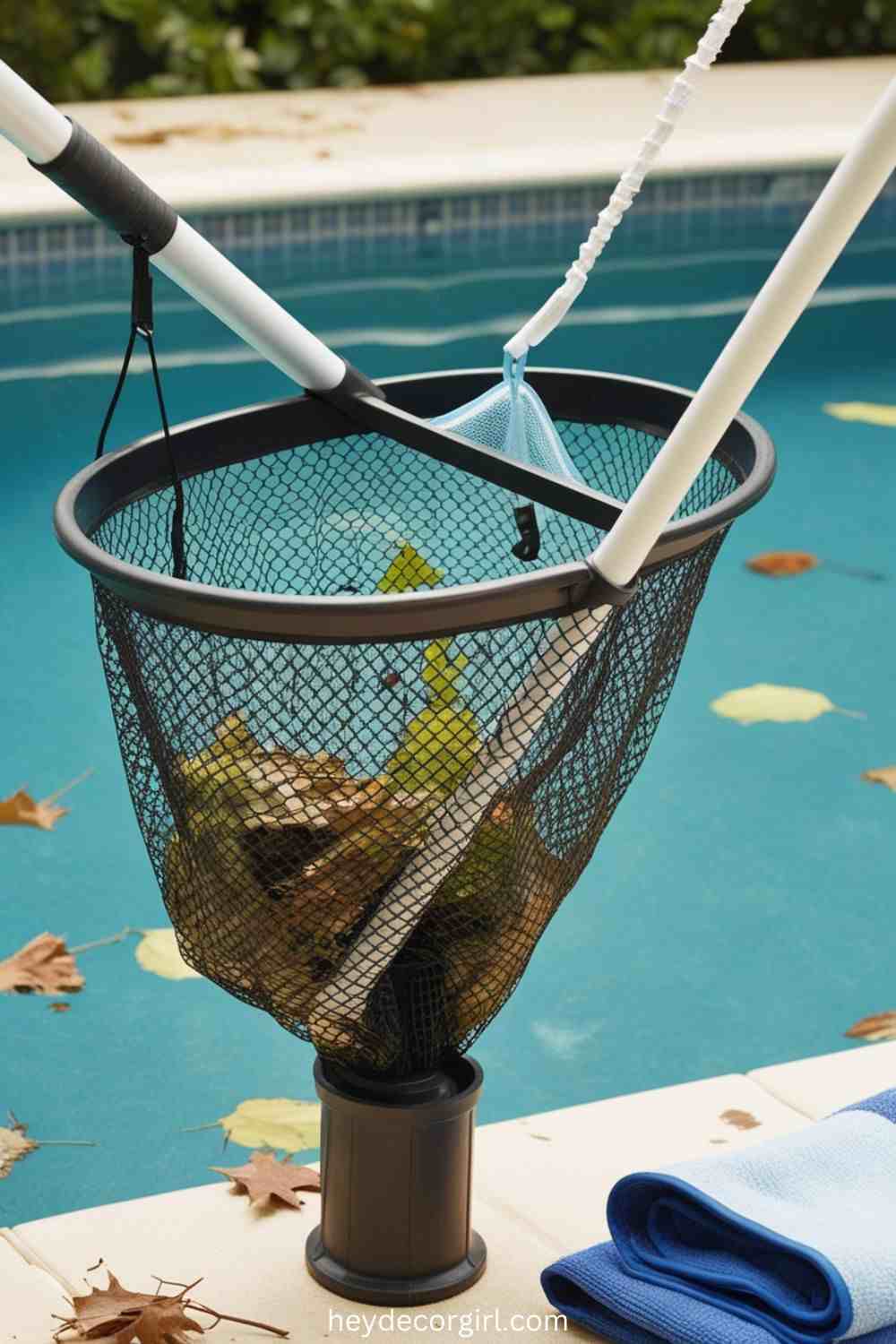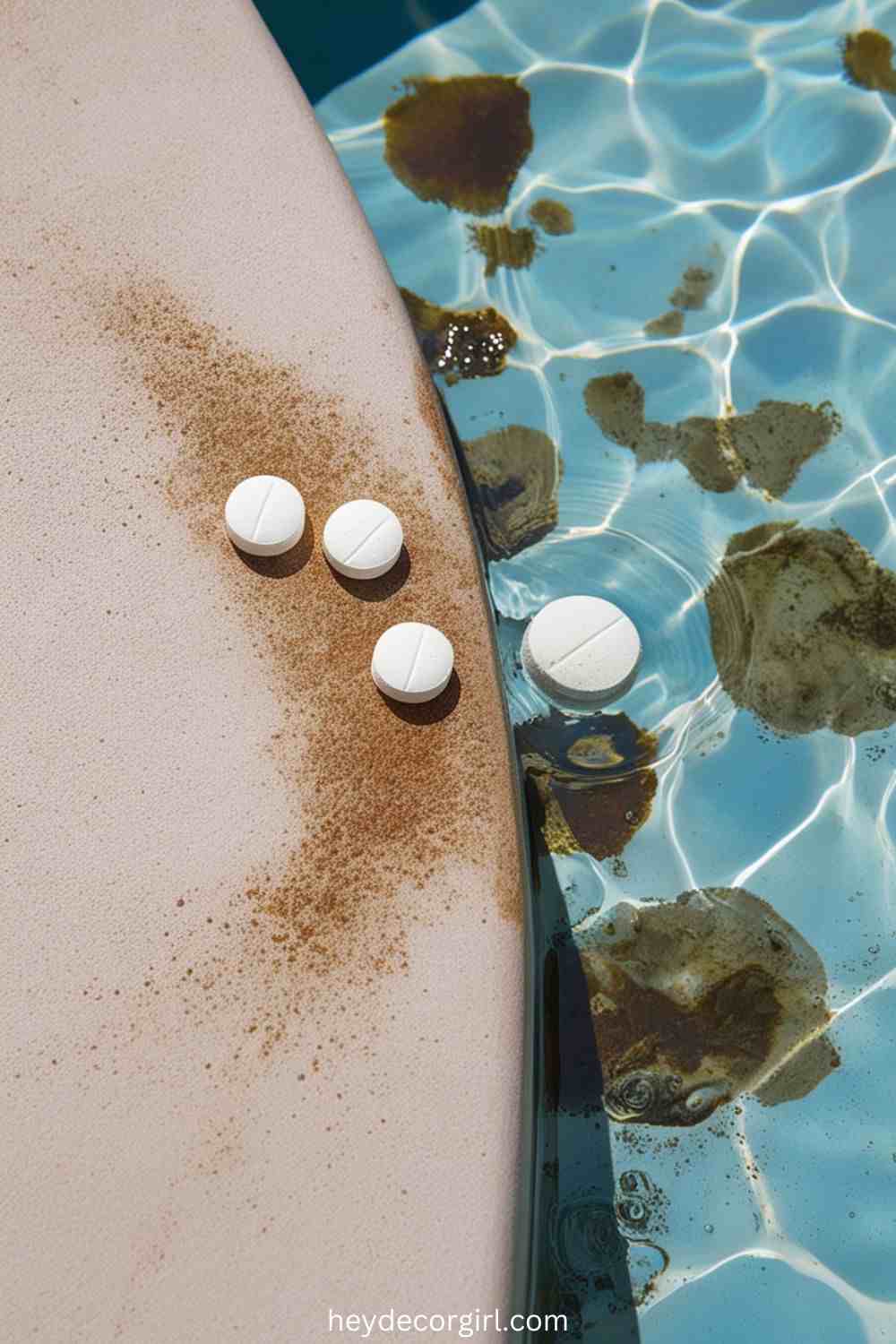A sparkling clean pool is every pool owner’s dream, but keeping it that way doesn’t have to be a chore. With these Pool Cleaning Hacks Ideas, you’ll discover smart and simple ways to maintain your pool effortlessly while saving time, money, and energy.
From repurposing household items to adopting clever techniques for tackling stubborn stains and algae, these innovative methods will transform your pool maintenance routine. Not only will you enjoy crystal-clear water all season long, but you’ll also prolong the life of your pool equipment and create a safer, more inviting space for family and friends. Let’s dive in and make pool cleaning a breeze!
Best Pool Cleaning Hacks Ideas
1. Skimming and Brushing Hacks
Keeping your pool’s surface free of debris is essential for maintaining water clarity and preventing clogging in the filtration system. Regular skimming removes leaves, bugs, and other floating particles, but you can make the process even more efficient with a few simple hacks. For instance, attaching a pantyhose or fine mesh over your skimmer basket can help trap smaller debris that might otherwise slip through. Additionally, brushing the pool walls and floor at least once a week prevents algae buildup and loosens dirt for easier vacuuming. As a bonus, toss a tennis ball into the pool to absorb oils and lotions from the water’s surface, leaving it looking clean and pristine with minimal effort.
2. Vacuuming Made Easy
Vacuuming your pool doesn’t have to be a time-consuming chore. Investing in a robotic pool vacuum is a game-changer, as these devices automatically clean the pool floor and walls, saving you hours of manual work. For a more budget-friendly option, consider a DIY vacuum setup using a garden hose and a vacuum head attachment, which can effectively remove dirt and debris. To ensure efficiency, always clean out the vacuum’s filter bag or debris container after each use. Regular vacuuming, combined with skimming and brushing, helps maintain a spotless pool and reduces strain on your filtration system, keeping your water crystal clear all season long.
3. Baking Soda for pH Balance
Maintaining the right pH balance in your pool is crucial for water quality and the longevity of pool equipment. Instead of relying solely on expensive commercial pH increasers, you can use baking soda as an affordable and eco-friendly alternative. Baking soda, or sodium bicarbonate, helps raise the alkalinity of the water without significantly affecting the pH, creating a more stable environment that’s gentler on swimmers’ skin and eyes. Simply sprinkle the recommended amount around the pool and let the filtration system distribute it evenly. This hack not only saves money but also keeps your pool water balanced and sparkling clean.
4. Vinegar for Hard Water Stains
Hard water stains on pool tiles can be unsightly and difficult to remove, but white vinegar offers a simple and effective solution. The natural acidity of vinegar helps break down calcium deposits and mineral buildup, leaving your tiles clean and shiny. To use, soak a sponge or cloth in white vinegar and scrub the affected areas. For stubborn stains, let the vinegar sit on the surface for a few minutes before scrubbing. This non-toxic, budget-friendly hack is safe for your pool and eliminates the need for harsh chemical cleaners, making it a win for both your pool and the environment.
5. Hydrogen Peroxide as a Chlorine Booster
Hydrogen peroxide is a powerful yet gentle alternative to traditional pool chemicals, and it can be used to boost chlorine levels in your pool. By adding a small amount of hydrogen peroxide to the water, you help increase the oxidation process, which enhances chlorine’s ability to kill bacteria and sanitize the pool. It’s particularly effective for breaking down organic matter, such as body oils and sweat, which can use up chlorine. To use, add about 1 to 2 cups of 3% hydrogen peroxide per 10,000 gallons of water. This hack not only helps maintain clean, clear water but also reduces the amount of chlorine needed, making your pool maintenance more efficient and cost-effective.
6. DIY Algae Treatment with Household Items
Algae can quickly turn your pool into a green, murky mess, but you don’t always need harsh chemicals to fight it. A simple DIY algae treatment using household items can restore your pool’s clarity. One effective solution is using borax, a common laundry booster, which helps increase the pool’s pH and prevents algae growth. To use, add about 1/4 cup of borax per 1,000 gallons of pool water, stirring it in thoroughly. Another option is using a mixture of household bleach and water (1 gallon of bleach per 10,000 gallons of pool water) to kill algae and prevent future growth. These affordable and eco-friendly hacks can keep your pool algae-free without breaking the bank.
7. Repurposing Household Items
Repurposing everyday household items can make pool cleaning easier and more cost-effective. For example, an old pair of pantyhose or tights can be stretched over your pool’s skimmer basket to catch smaller debris like hair and fine particles that regular filters might miss. This simple hack helps improve your skimmer’s efficiency, reducing the frequency of manual cleaning. Another useful item is a plastic bottle: cutting it into a funnel shape can help you pour chemicals or cleaning solutions into your pool more precisely. Even a worn-out pool noodle can be used as a pool floatation device to help with cleaning hard-to-reach spots. These repurposed items offer innovative, budget-friendly solutions to make pool maintenance a breeze.
8. Creating a Pool Cover Hack
A pool cover is essential for keeping debris out and maintaining water quality, but commercial covers can be expensive. Instead, try this budget-friendly hack using bubble wrap, a material that offers both insulation and protection. Simply cut the bubble wrap to fit the size of your pool, and lay it on the surface. The bubbles act as a barrier, trapping heat in the water while also preventing dirt, leaves, and insects from falling in. For added convenience, secure the edges with weighted materials or pool-specific clips. This DIY pool cover not only keeps your pool clean but also helps retain warmth, reducing heating costs during cooler months.
9. Pool Net Alternatives
While pool nets are effective for removing debris, they can be bulky and sometimes difficult to maneuver. Fortunately, there are several clever alternatives you can use to make cleaning your pool faster and easier. One option is using a large, fine-mesh laundry bag, which can serve as a makeshift skimmer net. Simply attach it to a pool pole, and it works just as well for collecting leaves, twigs, and even insects. Another alternative is using a microfiber cloth or towel to quickly wipe down the water surface and collect fine debris. These alternatives are lightweight, easy to use, and often free or inexpensive, making them great options for those looking to simplify their pool cleaning routine.
10. Removing Stains with Vitamin C Tablets
Stubborn stains from metals like iron or copper can leave unsightly marks on your pool’s surface, but Vitamin C tablets offer a simple and effective solution. The ascorbic acid in Vitamin C reacts with the metals, breaking down the stains without harming the pool surface. To use, simply place a few Vitamin C tablets directly on the stained area, allow them to sit for a few minutes, then scrub with a soft cloth or sponge. For larger stains, you can dissolve several tablets in a bucket of water and pour the mixture over the affected areas. This natural, non-toxic method is not only easy on the pool but also a cost-effective way to restore your pool’s clean appearance.
FAQ
1. How often should I clean my pool using these hacks?
To keep your pool in top condition, you should perform basic cleaning tasks like skimming and brushing at least once a week. More intensive tasks like deep vacuuming and stain removal can be done every 2-4 weeks, depending on your pool’s usage and the surrounding environment.
2. Are these pool cleaning hacks safe for all types of pools?
Yes, most of these hacks are safe for all pool types, including inground and above-ground pools. However, it’s always a good idea to test a small area first, especially for DIY treatments, to ensure they don’t cause any damage to the pool surface.
3. Can I use vinegar or baking soda on all pool surfaces?
Both vinegar and baking soda are safe for most pool surfaces like tile, fiberglass, and plaster. However, avoid using vinegar on natural stone tiles, as its acidity may damage the stone. Always check your pool’s material before using any cleaning solutions.
4. How can I prevent algae growth in my pool?
To prevent algae growth, maintain proper water chemistry, regularly vacuum your pool, and use some of the DIY treatments like borax or hydrogen peroxide. Consistent cleaning and ensuring proper filtration are key in keeping algae at bay.
5. What should I do if my pool is still cloudy after using these hacks?
If your pool remains cloudy, the issue could be related to water chemistry or insufficient filtration. Check your pool’s pH, alkalinity, and chlorine levels. Consider using a flocculant to help clear cloudy water. If needed, perform a deep cleaning, including cleaning or replacing your pool’s filter.
6. How can I remove oil and lotion build-up from the pool surface?
A simple hack is to throw a tennis ball into the pool. The fibers will attract oils and lotions, keeping your pool surface cleaner. For more stubborn build-up, use a pool skimmer net to remove excess oils and then clean the tiles with vinegar or a specialized cleaner.
7. Can I use hydrogen peroxide for pool maintenance all the time?
While hydrogen peroxide is effective for boosting chlorine and cleaning organic matter, it should be used in moderation. Regular use can cause your pool’s pH levels to fluctuate. Be sure to monitor your water chemistry and adjust as needed.
8. Is it necessary to use a pool cover in the winter?
Yes, using a pool cover during the off-season is highly recommended. It helps keep debris out, maintains water temperature, and reduces cleaning time when you reopen the pool. The bubble wrap pool cover hack is a great and affordable winterizing solution.
9. How do I know if my pool’s pH balance is off?
If the water feels harsh on your skin or eyes, or if you notice scaling or cloudy water, your pH balance may be off. A pH level between 7.4 and 7.6 is ideal. You can easily test the water with pool test strips to determine if adjustments are needed.
10. Are there any cost-effective alternatives to store-bought pool cleaning supplies?
Absolutely! Many of the hacks in this article, like using baking soda, vinegar, and hydrogen peroxide, are budget-friendly alternatives to store-bought cleaners. Additionally, repurposing items like pantyhose and plastic bottles can help cut costs without compromising on cleaning effectiveness.

Hi, I’m Richa, the creative mind and passionate soul behind Hey Decor Girl. With a bachelor’s degree in Inter-space Design and a deep love for transforming spaces, I’ve dedicated my career to bringing style, comfort, and personality into homes. As an interior designer and architect, I’ve had the pleasure of crafting unique living environments that reflect the individuality of those who live in them.
At Hey Decor Girl, I share my expertise in all things home decor—from cozy living room makeovers to rustic farmhouse designs and everything in between. My mission is to inspire you to create spaces that not only look stunning but also feel like home. Whether you’re looking for the latest trends or timeless classics, I’m here to guide you every step of the way. Let’s make your dream home a reality, one stylish detail at a time.
Best Pool Cleaning Hacks Ideas Pool Cleaning Hacks Pool Cleaning Hacks Ideas
Last modified: December 30, 2024
![Hey Decor Girl [Latest Trending Decor Design Ideas]](https://heydecorgirl.com/wordpress/wp-content/uploads/2024/08/Heygirldecor-Logo.png)
